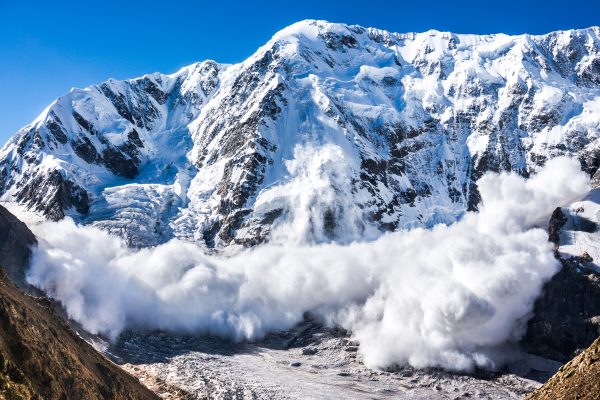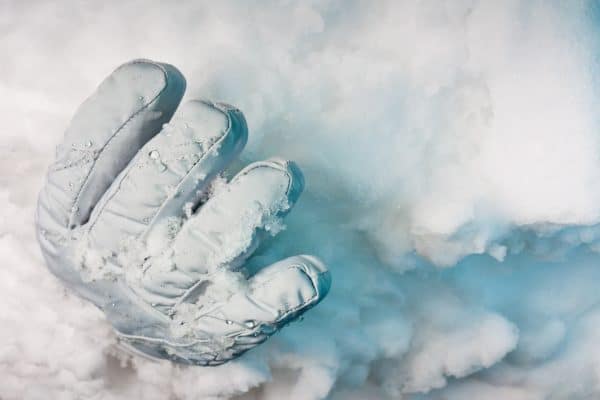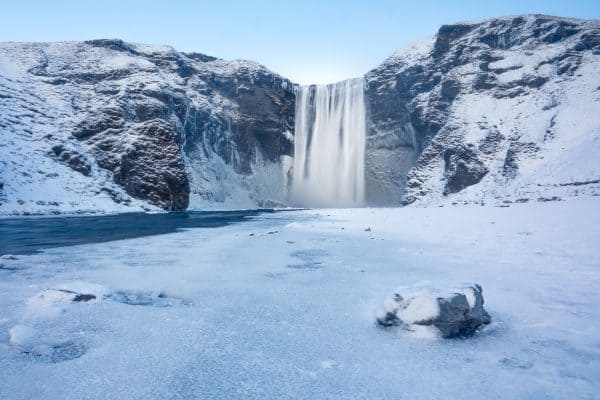Once the temperatures start to drop, you may have to cut or completely put on hold your morning or evening laps, pool parties, and moonlight dips. Private and public pools are sometimes drained completely before the deep cold. But what happens if you don’t drain the pool on time and it freezes? We've investigated the topic and here’s what we discovered.
The swimming pool gets damaged and in cases of extreme temperature drops, irreversibly. The effect of frozen water or ice can be devastating. The frozen water(ice) becomes heavier, thus applying more pressure on the pool as a whole. This means that:
- The pool tiles will crack or come off completely.
- The ice will loosen grout in the pool.
- Skimmers and pumps might burst in the cold due to water freezing inside them.
- The vinyl coating of the pool will peel off when left bare.
To avoid these horrendous damages, you need to protect your pool during the winter. Let’s look at what precautionary measures can be taken or implemented to curb each issue mentioned above.
NOTE: WE MAY GET A COMMISSION IF YOU DECIDE TO MAKE A PURCHASE THROUGH THESE LINKS. THERE'S ADDITIONAL NO COST TO YOU. CHECK THE BOTTOM OF THE PAGE FOR MORE INFORMATION.
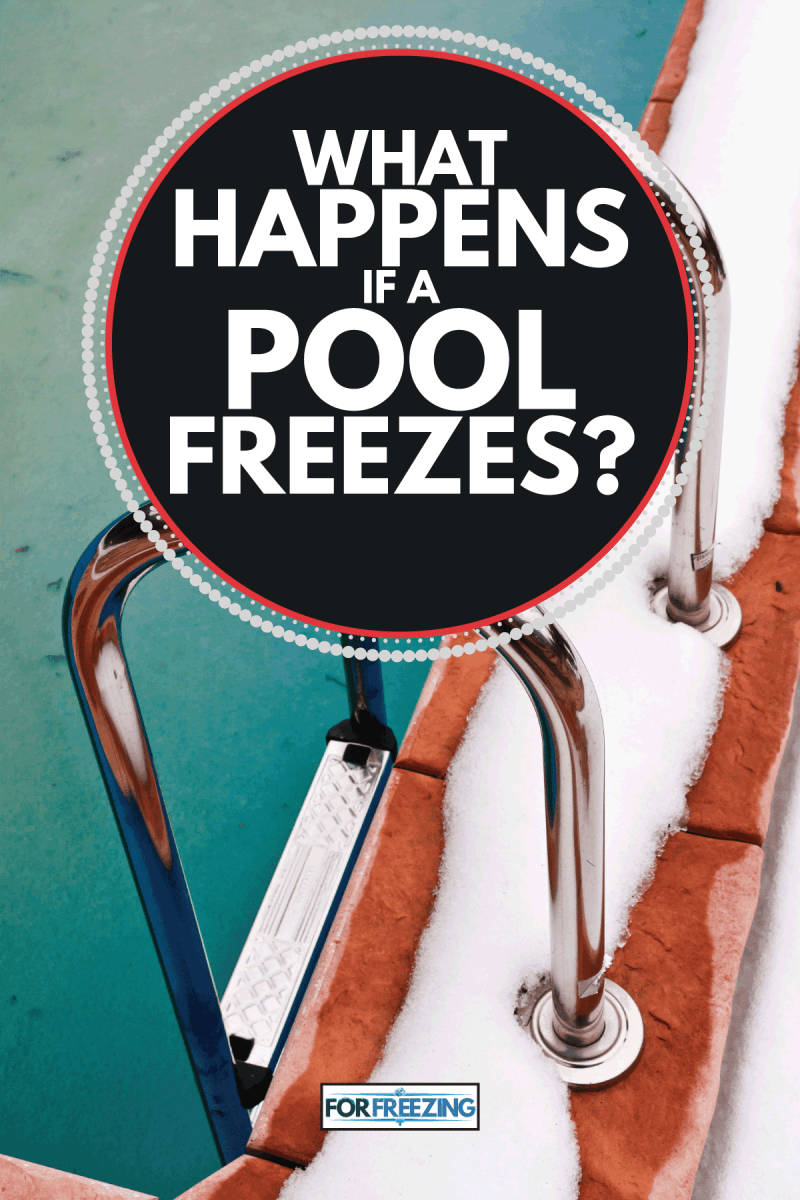
What Happens When A Pool Freezes
Tiles crack
In in-ground pools, there are hollow spots behind the tiles. When the water freezes in the cracks, the tiles crack or just pop out. Above ground pools will burst or crack and water may damage your lawn and equipment.
Scientifically, water doesn’t necessarily freeze at 32 degrees Fahrenheit or 0 degrees Centigrade. This is true for both chlorinated and saltwater swimming pools. Regardless, the water becomes way too cold and uncomfortable to swim in. This change is what becomes detrimental to your pool.
When temperatures drop, ice will start to form on the surface of the water. Thin ice is not a problem, say about a ¼ inch to ½ inch. Once the ice sheet becomes thicker, it becomes heavier. The weight of the ice sheet starts to weigh on the water below which in turn weighs on the structure.
Grout comes off
When water is not moving and circulating in the pool, it will lodge itself in cracks in your pool. When the water freezes in the cracks, it loosens the grout in the course of the cold season. The grout settles at the bottom. It may find its way to the filters and clog them.
Burst pipes and skimmers
Skimmers and pipes are most vulnerable in the cold. They should be shielded from the cold. When water is stagnant in the pipes and skimmers, it expands as it freezes. The added pressure will burst the pipes and dislodge the skimmers.
Vinyl Peels
If you have not winterized your pool, the vinyl coating could be damaged easily. Vinyl-covered pools need additional care. This coating will freeze and crack in pools that are emptied for the winter. Peeling vinyl will allow water to sip through the cracks in the tiles. This water will damage the pool in the long run.
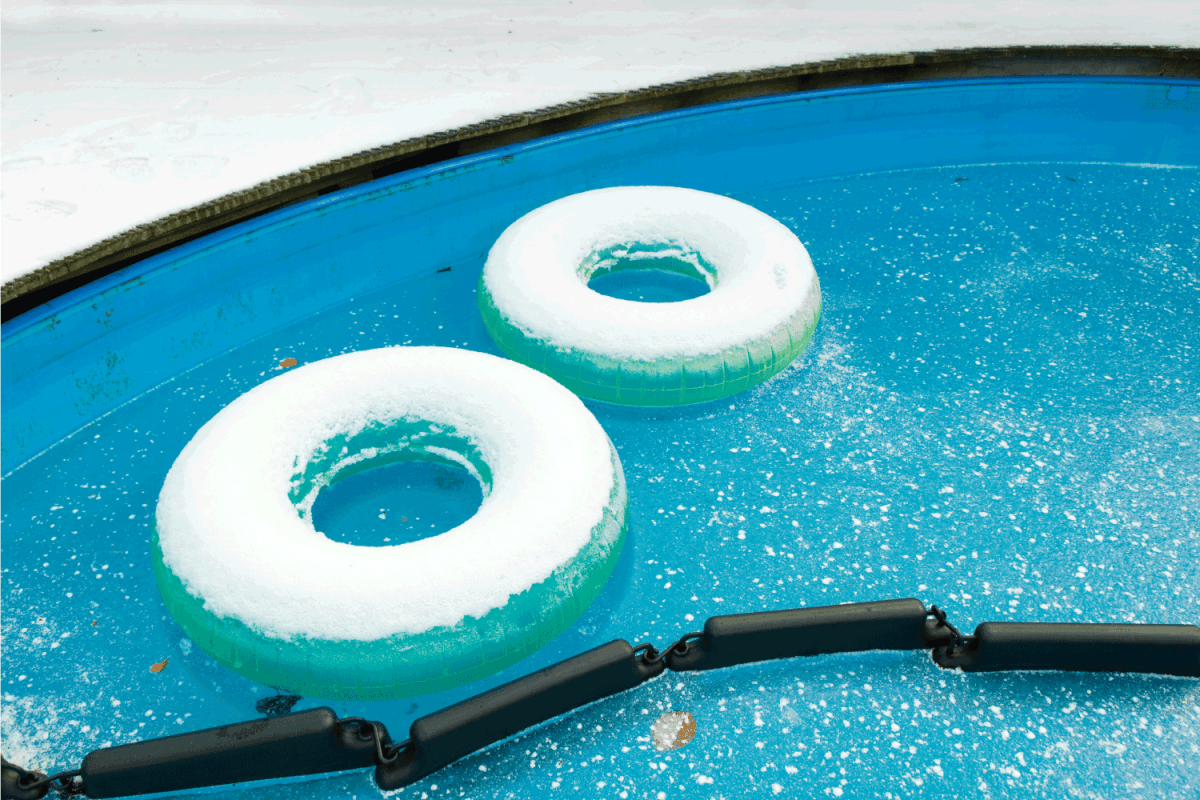
What temperature does a pool freeze?
It is everything concerning a pool that freezes. The water in the pool, the pool structure, and even the piping (if it’s above ground) freeze. Technically above-ground pools freeze faster than in-ground pools. Expect your swimming pool to start freezing when temperatures drop below 32 degrees Fahrenheit or 0 degrees Celsius. Once the atmospheric temperatures drop and stay like that for a while, and water isn’t circulating, the pool will freeze.
What should you do if your pool freezes?
You must be vigilant about your pool. When it freezes, do not panic. If your pool freezes and the ice covering it is more than ½ inch, break the ice carefully and drain some water out. Drain the water to at least 10 inches below the tile line.
Leave the water level no more than 12 inches below the tile line. This amount of water will be able to hold the snow load. Keep an eye on the snow levels and reduce the water as often as required. Start running the filters and pumps immediately. This will blow out the water lines to stop the water from freezing.
Once the lines are clear, add anti-freeze to the pool equipment to avoid freezing in the future. For pools that the plumbing is above the ground use a heating cable for pipes to heat them. Then drain any water in them so that they don’t burst.
How do you thaw a frozen pool?
In extremely cold weather, power blackouts are not rare. It could be that due to a power blackout your pool frozen over. To thaw it, pool experts recommend doing the following:
- First, start by turning off all electrical current running the pool equipment.
- Clear the bleed valve by pouring hot water to thaw any ice.
- To defrost the pipes, put a tent over them then run hot air in the tent to thaw them. You could also cover them with blankets.
- The next most vital step is to remove all the drain pipes and put them in the pump basket.
- Defrost the pool water and run the filter pumps. Moving water doesn’t freeze.
- You may want to call an expert if there’s extensive damage.
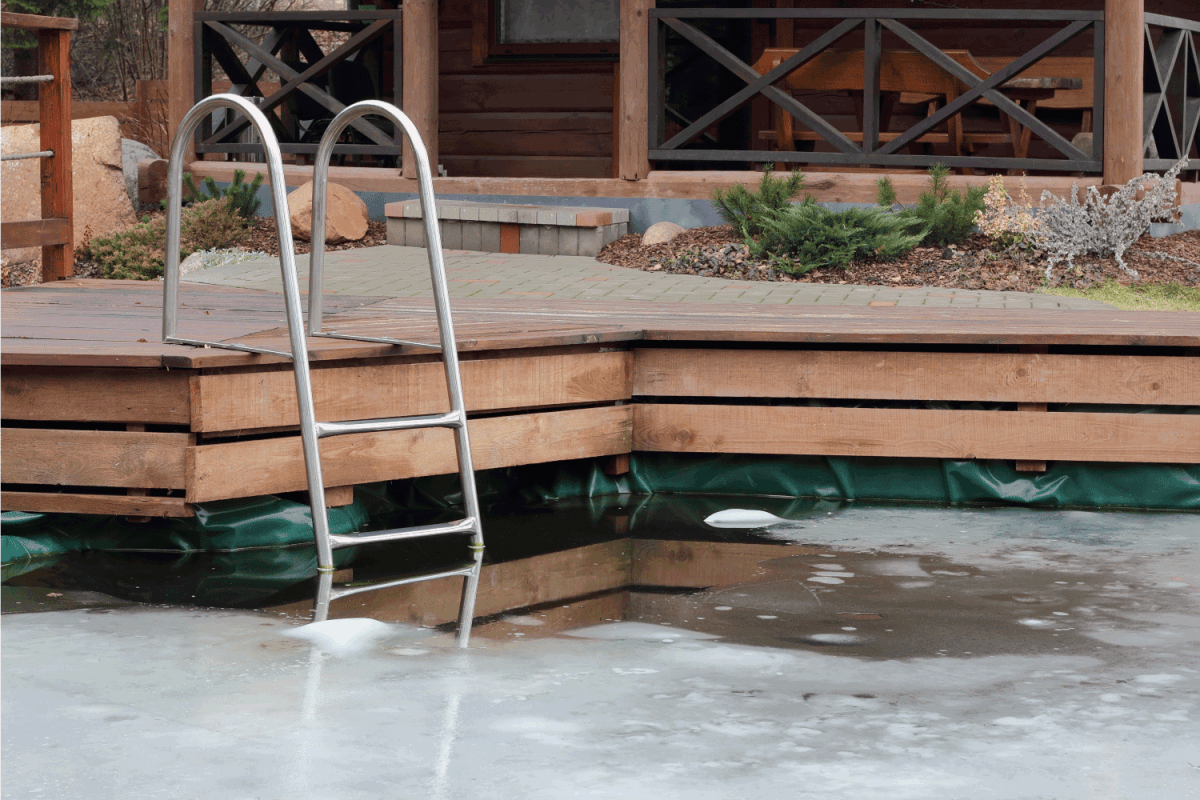
How to prevent pool water from freezing?
Ensuring that water in the pool isn't frozen is the key to having the pool serve you the longest. You can achieve this by ensuring the following:
- Water moving: The pumps and water heaters should be working throughout. This is to keep the water moving and stop it from freezing.
- Low water level: The water in the pool should be below the skimmers at all times. The skimmers will function properly and the frozen water won't dislodge them.
- Clear equipment: Ensure that the pool piping and equipment (if it's outdoors) are not covered with ice or snow. Keep them clear by using a blower or compressor.
- Pool cover: Invest in a good quality pool cover. This will keep the snow off. Make sure the water below is always moving to help relieve the cover of the weight of the snow.
- Air balloons: They do not allow ice to form evenly on the water surface.
- Pool maintenance: Don't stop maintaining your pool when you use it less. Especially in the cold months.
Should you run your pool heater in freezing weather?
You will have to consider your geographical location. Beware of how low the temperatures drop. In mild climates, pool heaters can be and should be kept running as usual. This way the water won't freeze.
But in zones where the winter is harsh, you will have to cover your pool. Winterize the piping equipment properly. Outdoor pools in such freezing weather can’t be put to use and could be damaged if left unattended.
When should you winterize your pool?
Winterizing your pool is treating and filtering it less in preparation for the colder months. Winterizing pools usually starts in autumn. When temperatures are low in the fall, pools aren’t in use as much. If autumn happens not to be as cold, you could wait till the start of winter. The main aim is to winterize your pool before temperatures drop very low. Start the process just before a layer of ice starts to form on the water surface.
In closing
From the information in this post, it is clear that allowing your pool to freeze could cause severe damages. The damages could be repairable but better still, avoidable. Pools are an expensive investment and therefore they should be well maintained to avoid costly repairs.

